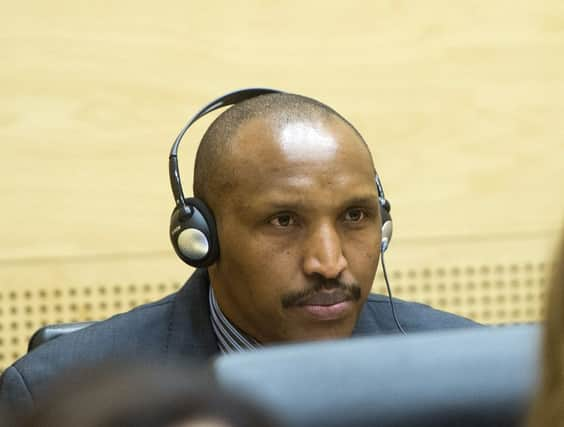Congolese war lord’s trial a test case


Prosecutors told judges that Bosco Ntaganda had committed the crimes while leading fighters of Hema ethnicity to drive ethnic Lendus out of the mineral-rich Ituri region in the northeast of the Democratic Republic of Congo over a decade ago.
The allegations against Ntaganda were made at the opening of hearings seen as a test for the legal institution after a string of troubled cases. Ntaganda could face life imprisonment if convicted and has yet to enter a plea.
Advertisement
Hide AdAdvertisement
Hide Ad“He played a key role in planning assaults against the civilian population in order to gain territory,” chief prosecutor Fatou Bensouda told judges who will decide if there is enough evidence for Ntaganda to stand trial.
Ntaganda, who commanded the United of Congolese Patriots (UPC) militia, had “failed to prevent or punish crimes by troops under his effective command or control,” she said. But defence lawyers responded that the Ituri conflict had not had the ethnic character prosecutors were ascribing to it.
“The UPC was not a Hema militia – several commanders belonged to other ethnic groups, including those who took part in the events that form the basis for the charges today,” said defence lawyer Marc Desalliers.
Ntaganda is accused of crimes against humanity and war crimes including murder and rape, all allegedly committed during a 2002-3 conflict in the east of the country.
“Victims were killed by bullets, by arrows, by nail-studded sticks,” said Dmytro Surprun, a lawyer representing victims of the alleged crimes. “Most of them were mutilated, some were decapitated, and their head borne as a trophy.”
Ntaganda’s lawyers said the militia was defending local civilian populations at a time when Congolese authorities were “absent from the region and even contributing” to the violence.
Ntaganda, a tall, slight man with a pencil-line moustache, rose briefly at the start of the hearing, speaking in his native Kinyarwanda tongue to confirm his identity. He handed himself in to the US embassy in the Rwandan capital Kigali last March after a 15-year career as a commander in a series of rebellions in Ituri province.
The session will be a test of prosecutor Ms Bensouda’s promise last year that cases will be “trial ready” by the time they come to court, in contrast to earlier cases that collapsed when judges ruled evidence was not strong enough.
Advertisement
Hide AdAdvertisement
Hide AdJudges are due to decide over the next few weeks whether to suspend their most high profile current case – against Kenya’s president on charges of orchestrating violence following 2007 elections – after several witnesses had withdrawn.